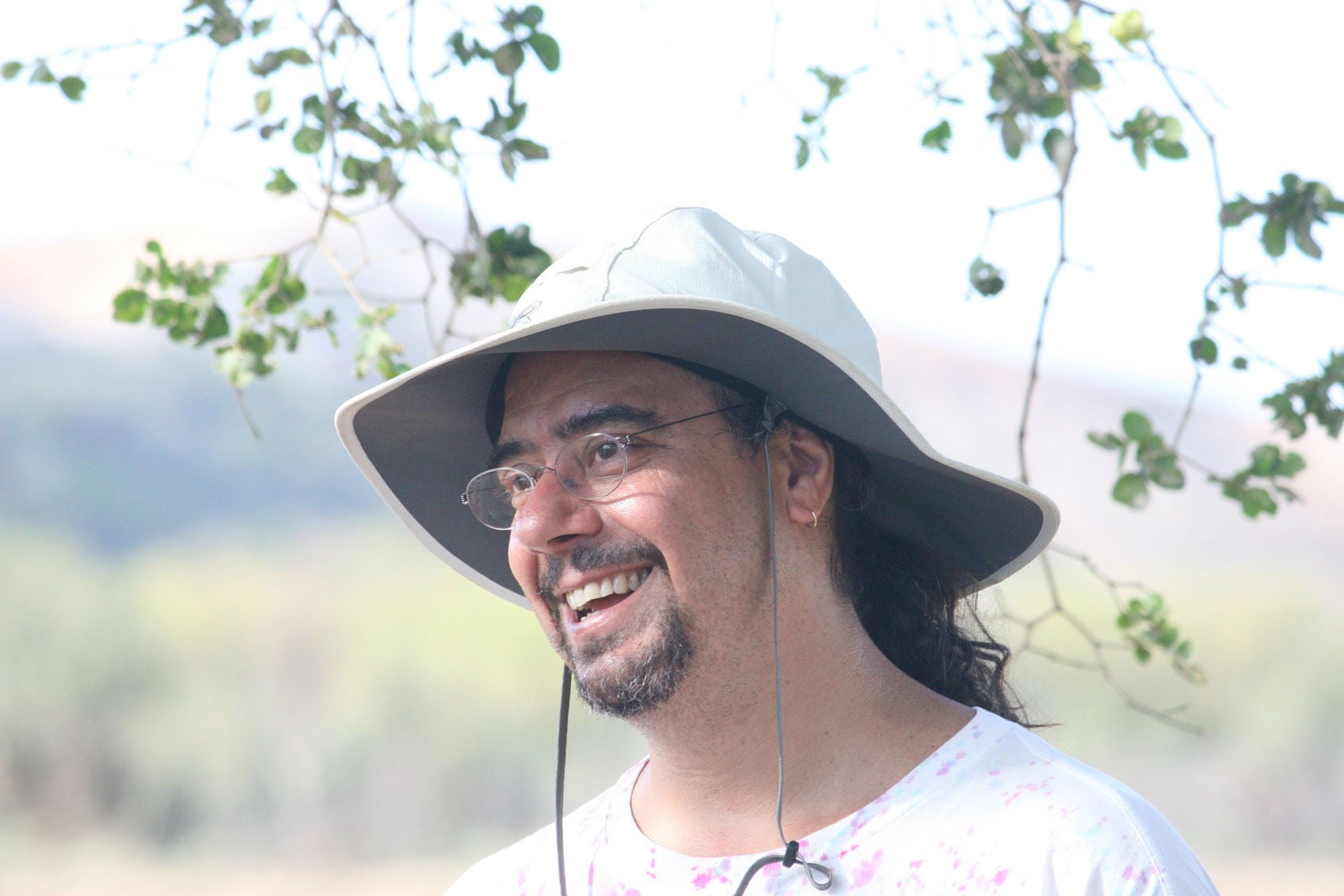Green Oscars: Venezuelan naturalist wins prestigious Whitley Gold Award for saving endangered parrot
Work has continued amid political and social upheaval

When Jon Paul Rodriguez arrived on Venezuela’s Caribbean coast, the plight of the imperilled yellow-shouldered parrot was dire. Then it got even worse.
A decision to transform Margarita Island into a duty-free zone lured thousands of tourists and further reduced the habitat of the bird, coveted as a pet and routinely netted by poachers.
Three decades on, Mr Rodriguez, 51, and his Provita organisation have turned the situation around and the number of parrots has soared from just 650 to 1,700. They did this by changing people’s attitudes towards the birds, recruiting poachers to be “eco guardians” who carry out a round-the-clock watch on their nests, and establish local pride in the environment. That this was achieved amid political upheaval and even violence was all the more striking.
This week, the efforts of Mr Rodriguez and his team were recognised in London when he was named the winner of Whitley Fund for Nature’s gold award. Sometimes referred to as the “Green Oscars”, the awards honour conservationists and activists working in the most difficult circumstances. A prize of £60,000 ($78,000) will allow Mr Rodriguez’s work to continue and even expand.
Edward Whitley, founder of the Whitley fund, of which Sir David Attenborough is a trustee, said: “Jon Paul’s work has been crucial in turning the situation around for the yellow-shouldered parrot. He has worked with local communities for more than 30 years and has led his team with commitment.”
Conservation success for the Gorongosa National Park in Mozambique
Show all 8Speaking while on a recent visit to New York, Mr Rodriguez said his approach to conservation, which placed the community at the centre of efforts, had been inspired by projects elsewhere around the world in which people were made to feel they had a stake.
“Over the last two decades we hear been able to restore the birds,” he told The Independent. “We do 24-hour nest protection. We have a team of eco guardians. In the past they were poachers who caught the parrots, but now they work with us to save the birds.
“Poaching still goes on in other parts of the country – there is a domestic market for the parrots as pets, and some international trade. We can offer the poachers something different to bust and boom. We employ them for several months, when previously these men would have been fighting to catch the birds. Then we do everything we can to find employment for them doing the rest of the year.”
Venezuela is one of the richest bird habitats in the world, with 1,383 confirmed species – of which 45 are endemic. The Venezuelan troupial is its national bird.
Birds of Venezuela, a 1978 guide written by Rodolphe Meyer de Schaunesee and William Phelps, and which contains vibrant colour plates drawn by Guy Tudor, says: “The richness of the Venezuelan avifauna is attested to by the fact that about 44 per cent of all species found in South America occur within the boundaries of the republic.”
Mr Rodriguez, who was presented with his award by Princess Anne at the Royal Geographical Society, said Venezuela was once a regular destination for international birdwatchers. But tourism had fallen off as the country’s problems had exacerbated, with opposition leader Juan Guaido seeking to oust president Nicolas Maduro with the support of the US and several other countries. More than 3 million people have fled the country, and this week the capital, Caracas, saw violence as supporters of Mr Guaido clashed with security forces.
Mr Rodriguez said that away from the capital, people’s interaction with the authorities was more straightforward. He said a crucial step in safeguarding the yellow-shouldered parrot was to have it recognised as as the official, regional bird of the state of Nueva Esparta.
“We are lucky to have the support of of international groups and organisations,” he said. “This allows us to weather local challenges.”
Mr Rodriguez won his original Whitley Award in 2003 in support of his work, and has received several further funding grants from WFN since then.
He said the Whitley gold award would greatly contribute to increasing his international visibility and projecting him to the global conservation arena.
Six other conservationists have also been honoured with awards – Ghana’s Caleb Ofori-Boateng, Bulgaria’s Nikolai Petkov, Madagascar’s Vatosoa Rakotondrazafy, Argentina’s José Sarasola, Indonesia’s Wendi Tamariska and Costa Rica’s Ilena Zanella.
In 2016, Mr Rodriguez was elected Chair of IUCN’s Species Survival Commission, a global conservation organisation founded in 1948 and which has its secretariat in Switzerland. He was the first person from outside Europe or North America to hold this position.
He said he dreamed of a future for Venezuelan birdwatching and conservation in which international visitors paid for a package that included a week on the Caribbean beaches, and then three or four days in the forest, getting close up with nature.
“The country is uniquely located at the tip of South America, and there were all these different habitats – Amazon, Andean, Orinocan. In a relatively small area, you get all this diversity,” he said.
“We used to have a large birdwatching community. That has declined as the political situation has worsened. But the birds are still there.”
Subscribe to Independent Premium to bookmark this article
Want to bookmark your favourite articles and stories to read or reference later? Start your Independent Premium subscription today.

Join our commenting forum
Join thought-provoking conversations, follow other Independent readers and see their replies